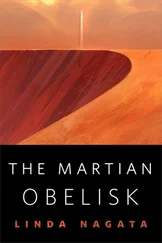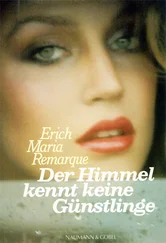Cautiously we unpack the two black war memorials. They really ought to stand at the entrance to make an impressive effect, and in winter we would place them there; but it is May and, strange though it may seem, our courtyard is an arena for cats and lovers. The cats begin to scream from the monuments in February and chase each other behind the cement grave borders; the lovers, however, put in their appearance as soon as it is warm enough to make love in the open—and when is it too cold for that? Hackenstrasse is a quiet, remote street, our gate is inviting, and our garden old and large. The somewhat macabre display does not disturb the lovers; on the contrary, it seems to stir them to particular frenzy. Only two weeks ago, a chaplain from the village of Halle, who like all men of God was accustomed to rise with the roosters, came to see us at seven in the morning to order four of the smallest headstones for the graves of four charitable nuns who had died during the preceding year. As I, drunk with sleep, was leading him into the garden I was able to remove, just in time, a rose-colored stocking of artificial silk that was floating like a flag from our last memorial cross, left there by some enthusiastic nocturnal pair. Unquestionably there is something conciliatory, in the broad, poetic sense, about sowing life in a place of death, and Otto Bambuss, the poet schoolmaster of our club, when I told him about it, promptly stole my idea and worked it up into an elegy with cosmic humor—on the other hand it can be rather disturbing, especially when an empty brandy bottle stands there too, gleaming in the morning sun.
I supervise the display. It makes a pleasant effect, as far as one can say that of tombstones. The two crosses stand on their pedestals shimmering in the sunlight, symbols of eternity, hewn fragments of a once-glowing earth, now cooled, polished, and ready to preserve forever the name of some successful businessman or rich profiteer—for even a scoundrel does not like to depart from this planet without leaving some trace behind.
“Georg,” I say, “we’ll have to take care your brother doesn’t sell our Werdenbrück Golgotha to some miserable farmer who won’t pay until after the harvest. On this lovely day, amid the song of birds and the aroma of coffee, let us take a holy oath not to sell these two crosses except for cash on the line!”
Georg smiles undismayed. “It’s not as dangerous as that We have to redeem our note in three weeks. As long as we get the money before that we are ahead of the game—even if we sell at cost.”
“Ahead of the game!” I reply. “And illusion until the next dollar quotation.”
“Sometimes you’re too commercial.” Georg meticulously lights a cigar worth five thousand marks. “Instead of complaining, you should rather regard the inflation as a reversed symbol of life. At the end of each day your life has one day’s duration less. We live our life on capital, not income. Each day the dollar rises, but each night your life is quoted at one day less. There you have the subject for a sonnet.”
“That’s a theme for Eduard Knoblach.” I look at the self satisfied Socrates of Hackenstrasse. Small beads of sweat adorn his bald head like pearls on a bright dress. “It’s amazing how philosophical a fellow can be when he has not slept by himself,” I say.
Georg does not move an eyelash. “What would you expect?” he asks me calmly. “Philosophy out to be serene, not tormented. To mix it up with metaphysical speculation is just like mixing sensual pleasure with what the members of your Poets’ Club call ideal love. It makes an intolerable mishmash.
“Mishmash?” I say, somehow hurt. “Hold on a minute, you bourgeois adventurer! You butterfly collector, trying to impale everything on needles! Don’t you know that without what you call mishmash you’re as good as dead?”
“Absolutely not. I just keep things separate.” Georg blows cigar smoke into my face. “I prefer to endure the transitoriness of life with dignified philosophic melancholy rather than commit the vulgar error of confusing some Minna or Anna with the chilly secret of existence and of assuming that the world would come to an end if Minna or Anna preferred some other Karl or Josef. Or if an Erna preferred some overgrown infant in English tweeds.”
He grins. I stare coldly into his disloyal eye. “A cheap crack, worthy of Heinrich!” I say. “You simple connoisseur of what’s available! Will you please tell me then why you read so much passion the magazines that are crammed full of unattainable sirens, scandals of high society, great ladies of the theater, and movie queens?”
Georg once more blows three hundred marks’ worth of smoke into my eyes. “I do that for purposes of fantasy. Have you never heard of heavenly and earthly love? Only a short time ago you were trying to combine them in your Erna and learned a sound lesson, you simple-minded delicatessen dealer in love, trying to keep sauerkraut and caviar on the same shelf! haven’t you found out yet that then the sauerkraut will never taste like caviar but the caviar will always taste like sauerkraut? I keep them carefully separated. Now come, let’s go and torment Eduard Knoblach. Today he’s serving beef stew with noodles.”
I nod and go without a word to get my hat. Inadvertently Georg has dealt me a heavy face blow—but I’m damned if I’m going to let him know it.
When I return Gerda Schneider is sitting in the office. She is wearing a green sweater, a short dress, and big earrings with artificial stones. On the left side of her sweater she has pinned one of the roses from Riesenfeld’s bouquet, which must be extraordinary durable. Pointing at it, she says: “Merci! Everyone was envious. That was a bush for a prima donna.”
I look at her and think: very likely there sits exactly what Georg means by earthly love—clear, determined, young and without affectation. I sent her flowers, and she has come, and that’s all there is to it. She has interpreted the flowers as any intelligent person should. Instead of acting a tedious part, here she is. She has accepted, and there is really nothing more to talk about.
“What are you doing this afternoon?” she asks.
“I’m working until five. Then I’m going to give a tutoring lesson to an idiot.”
“What in? Idiocy?”
I grin. “Come to think of it, yes.”
“That would be until six. Come to the Altstädter Hof afterward. I exercise there.”
“All right,” I say without pausing to consider.
Gerda gets up. “Well then—”
She hold up her face to me. I am surprised. I hadn’t expected so much from my gift of flowers. But why not, really? Very likely Georg is right: one oughtn’t to combat the pains of love with philosophy—only with another woman. Cautiously I kiss Gerda on the cheek. “Dummkopf!” she says and kisses me warmly on the mouth. “Traveling artistes don’t have time for foolery. In two weeks I must be off. Well then, till tonight.”
She walks out, erect, with her firm, strong legs and strong shoulders. On her head she has a red Basque beret. She seems to love color. Outside she stops beside the obelisk and glances at our Golgotha. “That’s our inventory,” I say.
She nods, “Does it bring you any income?”
“So-so—in these times—”
“And you’re employed here?”
“Yes. Funny, isn’t it?”
“Nothing’s funny,” Gerda says. “What about me spending my time in the Red Mill sticking my head backward between my legs? Do you think God had that in mind when he made me? Well, till six.”
Old Frau Kroll comes out of the garden with a sprinkling can in her hand. “That’s a respectable girl,” she says, glancing after Gerda. “What is she?”
“She’s an acrobat.”
Читать дальше








